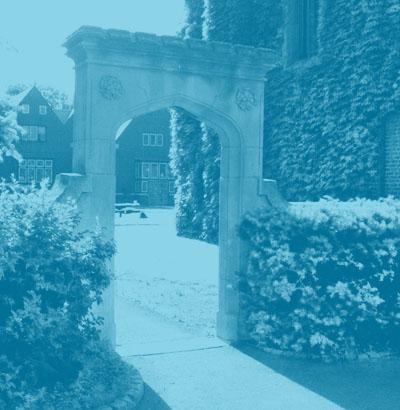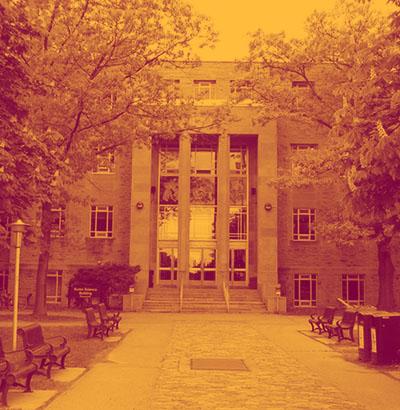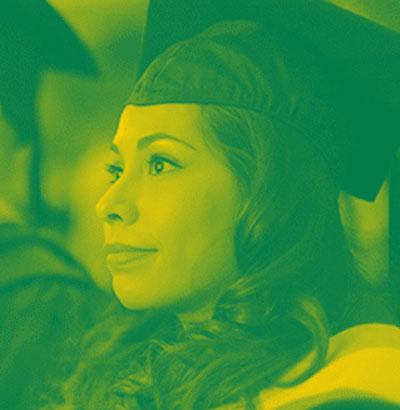Program Requirements
LIFESCI 3RP3, 4A03, 3EP3, 4EP6A/B, 4B09A/B, 4C12A/B and 4D15A/B will fulfill your course list requirement for Course List C.
For students who entered a Life Sciences program in September 2024, units from LIFESCI 4A03, 4EP6 A/B, 4B09 A/B, 4C12 A/B and 4D15 A/B can alternatively/additionally fulfill your course list requirement for Course List E.
For students who entered a Life Sciences Program 2023 or prior, should you wish to use a thesis or independent project course to fulfill Course List E, please indicate this when completing your Ballot Process survey or email sis@mcmaster.ca. An advisement report exception will be needed for units to be applied correctly.
Taking LIFESCI 4A03, 4EP6 A/B, 4B09 A/B, 4C12 A/B and 4D15 A/B doesn’t preclude you from also being able to take a seminar/inquiry course on Course List E.
If you have other questions about how your units will be distributed to fulfill your degree requirements, please contact sis@mcmaster.ca.
Three units of Course List C are required to graduate. The one exception is the Honours Life Sciences Co-op program. Please refer to the academic calendar to review program requirements.
Courses
LIFESCI 3EP3 is a work-integrated learning (WIL) experience, while LIFESCI 3RP3 is a research-based learning experience. A work-integrated learning experience is one where you are learning practical skills and protocols in a workplace environment – this environment is not restricted to McMaster University research laboratories, and you may find a workplace in other sectors, such as clinical, government, commercial, educational, etc. A research-based learning experience may do some of this as well, but will also involve generating novel findings in a research context, through the use of those skills and protocols in your research environment.
Please refer to the course outlines for a more detailed description of the material covered in the class period. In general terms, the class portion of experiential courses is designed to provide the student with the support required to have the best experience while undertaking research or carrying out the work in the placement.
Students can complete LIFESCI 3EP3, LIFESCI 3RP3 and LIFESCI 4A03 in spring. Summer offerings cannot be guaranteed.
Please check the course outline.
No. You cannot be paid for work that will earn you academic credit.
Research/Thesis Courses (LIFESCI 3RP3, 4A03, 4B09, 4C12, and 4D15):
The courses differ in the number of hours students are expected to commit to their project and the scale of their thesis. You should expect to spend approximately 15 hours per week on preparation and research in LIFESCI 4B09, 20 hours per week in LIFESCI 4C12 and 25 hours per week in LIFESCI 4D15. This does not include class time.
If you plan on taking a thesis course in the future, you should take LIFESCI 3RP3 and not LIFESCI 4A03 because LIFESCI 4A03 is an antirequisite for all thesis courses. LIFESCI 4A03 should be considered for students who are looking for courses to satisfy their Level IV course code requirements. For additional information, please refer to the Course Listings page on the McMaster Academic Calendar.
LIFESCI 4B09: 4.5 units per term; LIFESCI 4C12: 6 units per term, LIFESCI 4D15: 7.5 units per term
No. While it is recommended you complete LIFESCI 3RP3 prior to a thesis course, it is not a mandatory prerequisite for any LIFESCI thesis courses. However, if you enroll in a thesis course after completion of LIFESCI 3RP3 there should be no overlap in the content of the deliverables.
Yes, but you must demonstrate that your project is significantly different from your previous experience with the supervisor and that the content of the deliverable submitted for evaluation does not overlap.
Placement Courses (3EP3 and 4EP6)
The difference between LIFESCI 3EP3 and 4EP6 is in the number of credits allocated to each course and the length of time. LIFESCI 3EP3 is a 3-unit course that can be completed in one term whereas 4EP6 is a 6-unit course that is completed over two terms. In addition, students in LIFESCI 3EP3 must complete a minimum of 60 hours at their placement while LIFESCI 4EP6 students must complete a minimum of 120 hours.
In principle yes, but you must explain in detail how your placement experience in one course will be different from the previous experience.
You should start your placement at the beginning of the term (first day of classes as posted in the Academic Calendar). Your placement activities should end on or a few days prior to the last day of classes (as posted in the Academic Calendar).
It will depend on your placement, and you should discuss with your supervisor their expectations at or before the onset of the placement.
Yes you can.
No, SCIENCE 2C00 can be taken with the placement courses. It cannot be taken after the completion of a placement course.
The LIFESCI 4EP6A/B course units will be distributed evenly between the two terms. 3 units will be in fall term and the remaining 3 units will be in winter term of your placement. Terms are denoted in Mosaic using the notation A/B, where A is fall and B is winter.
Student evaluation is done by the course coordinator and the placement supervisor. Additional information is be provided in the course outline.
We recommend you dedicate 5 hours to your placement per week. You are required to dedicate a minimum of 60 hours in total at your placement for LIFESCI 3EP3 and a minimum of 120 hours in total for LIFESCI 4EP6.
Some examples of placements that past students have completed are medical clinics, physiotherapy office, and retirement homes.
During a placement, students may develop all or most of the skills described in the Provincial University Employability Skills list such as critical thinking, communication, time management, and teamwork.
Finding a Supervisor for LIFESCI 3RP3/4A03/4B09/4C12/4D15
Students are responsible for finding their own supervisor. A good starting point is the McMaster Experts page. In general, as students progress through their academic career and attend classes, go to office hours, and meet TAs during tutorial, they may come to know faculty that could be potential supervisors. TAs can be a great source of information regarding faculty that may be accepting students in their research groups. If you are unsure about the eligibility or status of your prospective supervisor please contact sisip@mcmaster.ca and we will provide guidance.
If your supervisor is a post-doc or an adjunct faculty of McMaster, you will need to find a co-supervisor who is a non-adjunct faculty member of McMaster.
Yes, if the project is collaboration. Please indicate which of your two supervisors will be the primary supervisor in your application. The primary supervisor will be the point of contact for the School and responsible for grading.
If you have a co-supervisor for your research project, they can be as involved as they would like. The tasks of co-supervisors can range from providing further guidance, editing work, to holding meetings together with your primary supervisor and you. It is up to the co-supervisor and whatever time and resources they can provide.
Yes, they can be outside of McMaster. However, you must find a co-supervisor who is a faculty member at McMaster University or affiliated with McMaster University.
Yes! Every year, our thesis students complete projects with supervisors from a wide range of disciplines from anthropology, to health statistics, to animal physiology. However, for the course completion to count towards your LIFESCI degree requirements, they must supervise your work under a LIFESCI course code as noted in program requirements in the Academic Calendar. Non-LIFESCI course codes will not fulfill the appropriate course lists for degree completion and will be considered an elective credit instead.
No, however you will be required to seek a co-supervisor who is a McMaster faculty member. If you are unsure about the eligibility or status of your prospective supervisor, please contact sisip@mcmaster.ca and we will provide guidance.
Please review the academic calendar to check to see that the courses you wish to take are not anti-requisites.
If they are not, you may proceed with the understanding that:
- You will need to demonstrate in your applications that your work and the area of focus in each course are completely unrelated, independent, and necessary.
- Should you complete the course offered by another department, it will be counted as elective credit, as the associated course codes do not appear on the Life Sciences course lists in the Academic Calendar. Asking for retroactive consideration of these courses to be applied to other course lists or treated as a LIFESCI thesis or project will be denied.
- You will need to seek permission from the department that offers the experiential course. They may direct you back to your home program during this process.
We recommend taking a LIFESCI experiential courses so that it will best fulfill your degree requirements.
Finding a Placement Supervisor for LIFESCI 3EP3/4EP6
Students are responsible for finding their own supervisor. You can contact professionals in the field of work that you are most interested in and ask if they would like to take you on as a placement student. If you are unsure about the eligibility or status of your prospective supervisor or the proposed placement, please contact sisip@mcmaster.ca and we will provide guidance.
No, your supervisor does not need to be a McMaster faculty member. Most 3EP3 and 4EP6 supervisors are not McMaster faculty members.
Application
Applications are found on the SIS website under Work-Integrated and Research-Based Learning. Work-Integrated Learning has the applications for LIFESCI 3EP3/4EP6, whereas Research-Based Learning has the applications for LIFESCI 3RP3/4A03/4B09/4C12/4D15.
30 days before the start of term.
Please review our application portal located on either the Research Based Learning page or the Work-Integrated Learning page.
Applications are reviewed after the deadline, 2 to 3 weeks before the start of term. It is important to submit your completed application in advance to ensure your enrollment in the course. Consent from your supervisor is required in the application. If the application is missing any information, it will not be reviewed and will cause delay in approval and enrollment. Once your completed application is reviewed you will receive an email confirming approval for enrolment in the course.
Please ensure your research/placement supervisor has checked all the information you submitted and completed the LIFESCI Supervisory Consent Form prior to submitting the application for review. You will not be allowed to participate in the course without your supervisor’s knowledge or consent of their involvement. The supervisory consent form can be done online for McMaster members or using a fillable PDF available to download for non-McMaster members.
If your application does not meet the criteria for your preferred course, we will recommend a more suitable alternative if available; however, you must submit a new application for the alternative course.
Course Enrollment
Yes. You can even take a research/thesis course and a placement course simultaneously.
No, you are not allowed to enroll as a graduated student. One of the prerequisites for our experiential courses is registration in a Life Sciences program.
After submitting your electronic application 30 days before the start of term (the term you will be taking the course) and after your application has been approved, you will receive an email from sis@mcmaster.ca, notifying you that permission has been loaded for you on Mosaic and you can then enroll.
It is important that students establish regular communications with their supervisor so that both parties can stay updated and have dedicated time to discuss any difficulties or concerns. In the situation that you and your supervisor do not get along after multiple conflict resolution attempts, it is important that the student contact sisip@mcmaster.ca as early as possible.
The LIFESCI 3EP3 project cannot be converted into a LIFESCI 4EP6 project after the drop/add course deadlines have passed – these deadlines apply to enrollment in these courses the same way they apply for lecture-based courses. You should discuss whether your placement would be better suited to a 1 term or 2 term duration with your supervisor at or before the onset of the placement, rather than requesting to extend a LIFESCI 3EP3 course beyond the end of term. If after completing your placement your supervisor wants to keep you on as a general volunteer or as a paid part time staff member, you are allowed to pursue this option as well.
After receiving email notification of your approval from sis@mcmaster.ca, please enroll like any other course. All emails are sent to McMaster University email address’ only.
Have you submitted and received approval on your electronic application? If no, refer to question “How do I enroll in a placement/thesis?”. If yes, you may have a course conflict or level issue. Please email sis@mcmaster.ca




